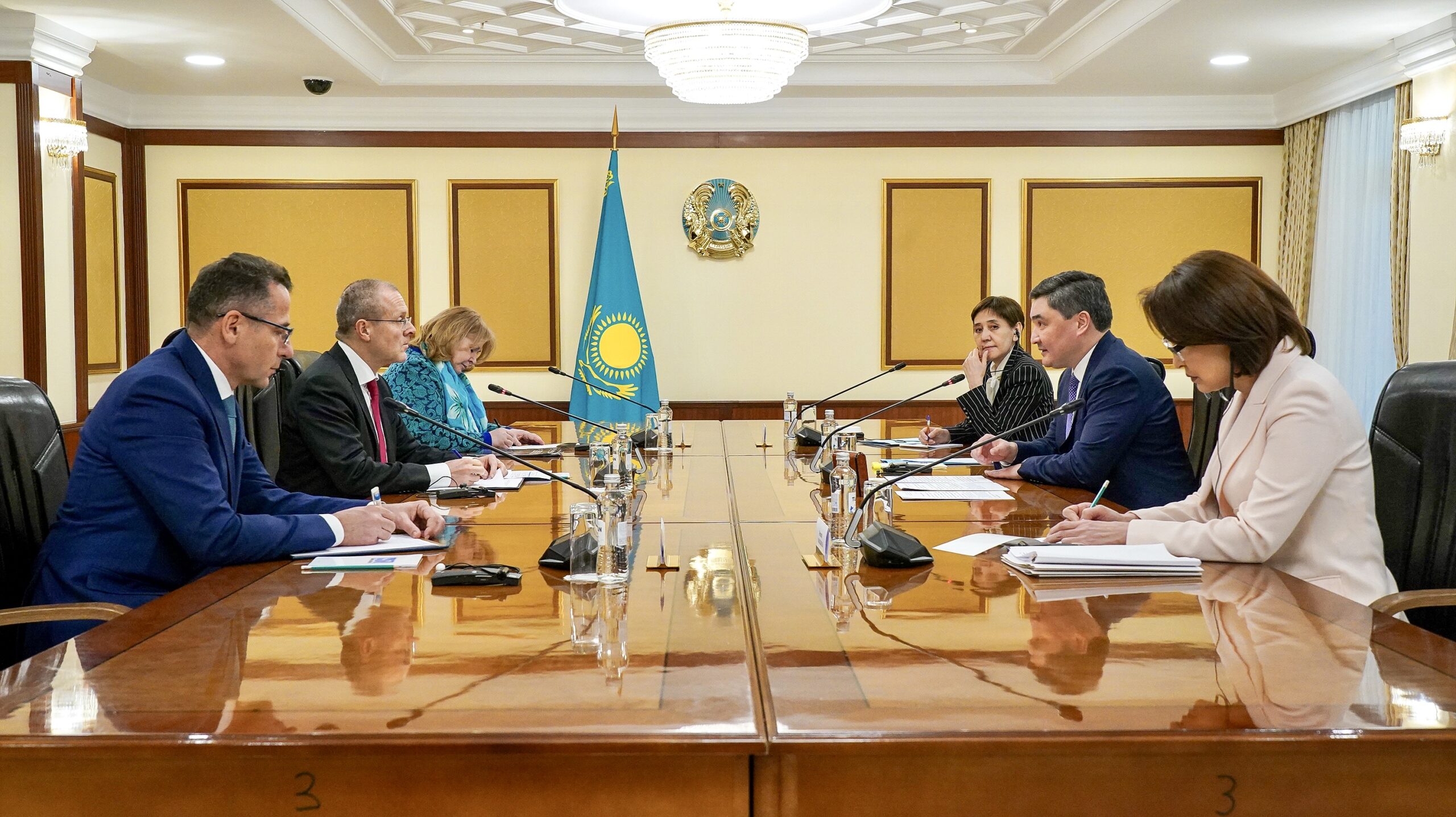ASTANA — Kazakhstan saw a decline in its incidence rate as a result of joint systematic work with the World Health Organization (WHO), a key strategic partner in healthcare, as reported during a March 13 meeting between Kazakh Prime Minister Olzhas Bektenov and WHO Regional Director for Europe Hans Kluge, according to the Prime Minister’s press service.

Kazakh Prime Minister Olzhas Bektenov meets WHO Regional Director for Europe Hans Kluge. Photo credit: primeminister.kz
With technical and expert support, Kazakhstan observed a reduction in respiratory and circulatory diseases and mortality rates, including those from malignant neoplasms.
Adherence to the principles of the 1978 Alma-Ata Declaration on primary healthcare contributed to lowering maternal and infant mortality rates while boosting life expectancy.
The meeting participants discussed the cooperation of the Kazakh government and WHO in achieving the Sustainable Development Goals in healthcare, particularly in ensuring universal health coverage, improving public health and increasing human resources within the Biennial Collaborative Agreement for 2024-2025, which was signed on Oct. 25, 2023.
Bektenov affirmed Kazakhstan’s commitment to fortified primary healthcare, mentioning President Kassym-Jomart Tokayev’s initiative to establish a coalition of countries on primary healthcare, supported by the WHO Director-General and member states.
“An important step in our joint work will be the launch of the coalition with the participation of member states and development partners within the 78th World Health Assembly in Geneva,” he added.
The Prime Minister highlighted expanding health service coverage across Kazakhstan within healthcare facilities and home care.
Kluge commended Kazakhstan’s substantial progress in increasing the sustainability of its national healthcare system.
Following the meeting, the parties outlined areas for further enhancement, particularly in elevating the quality of medical services to achieve a high level of public health.
